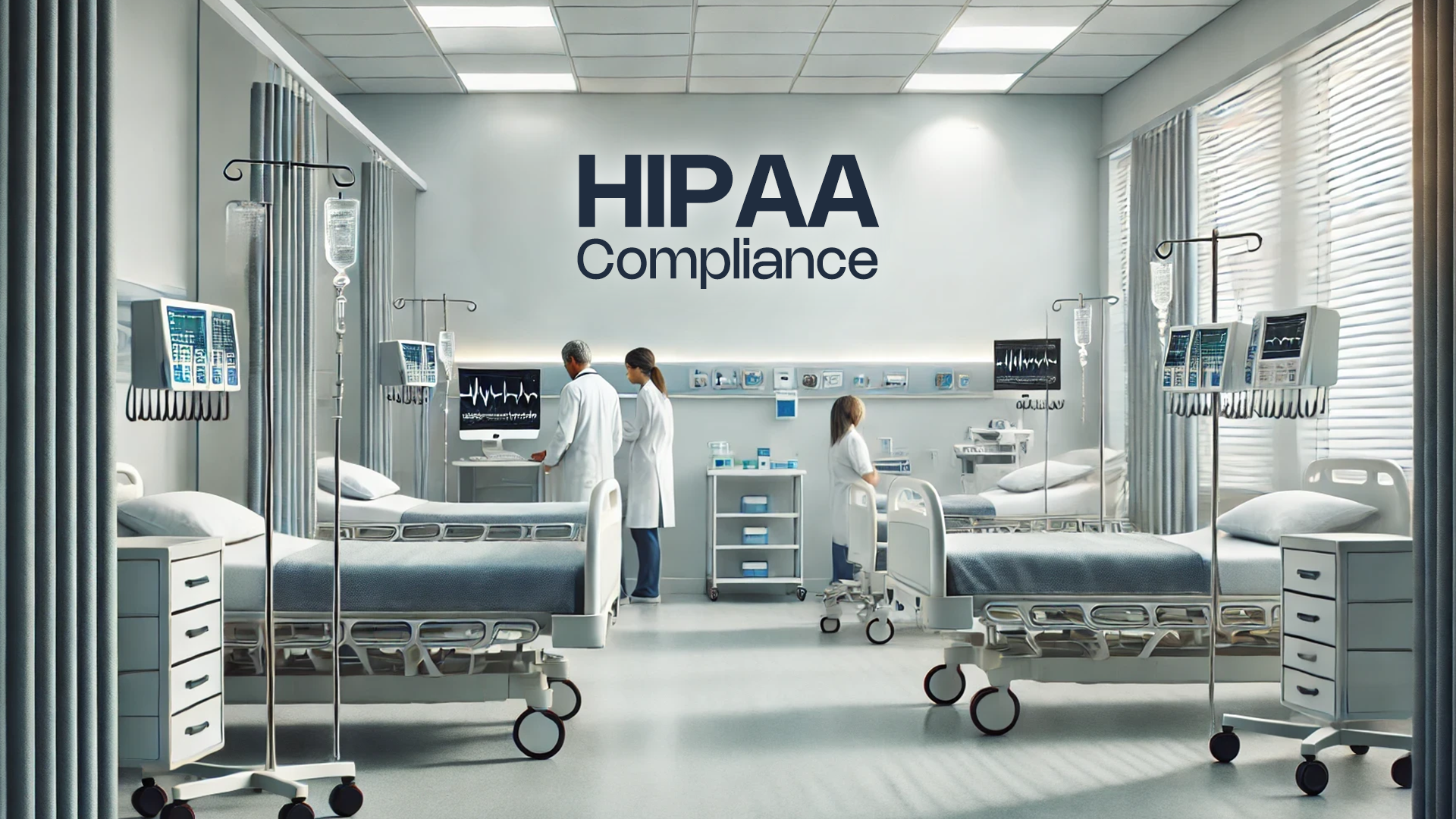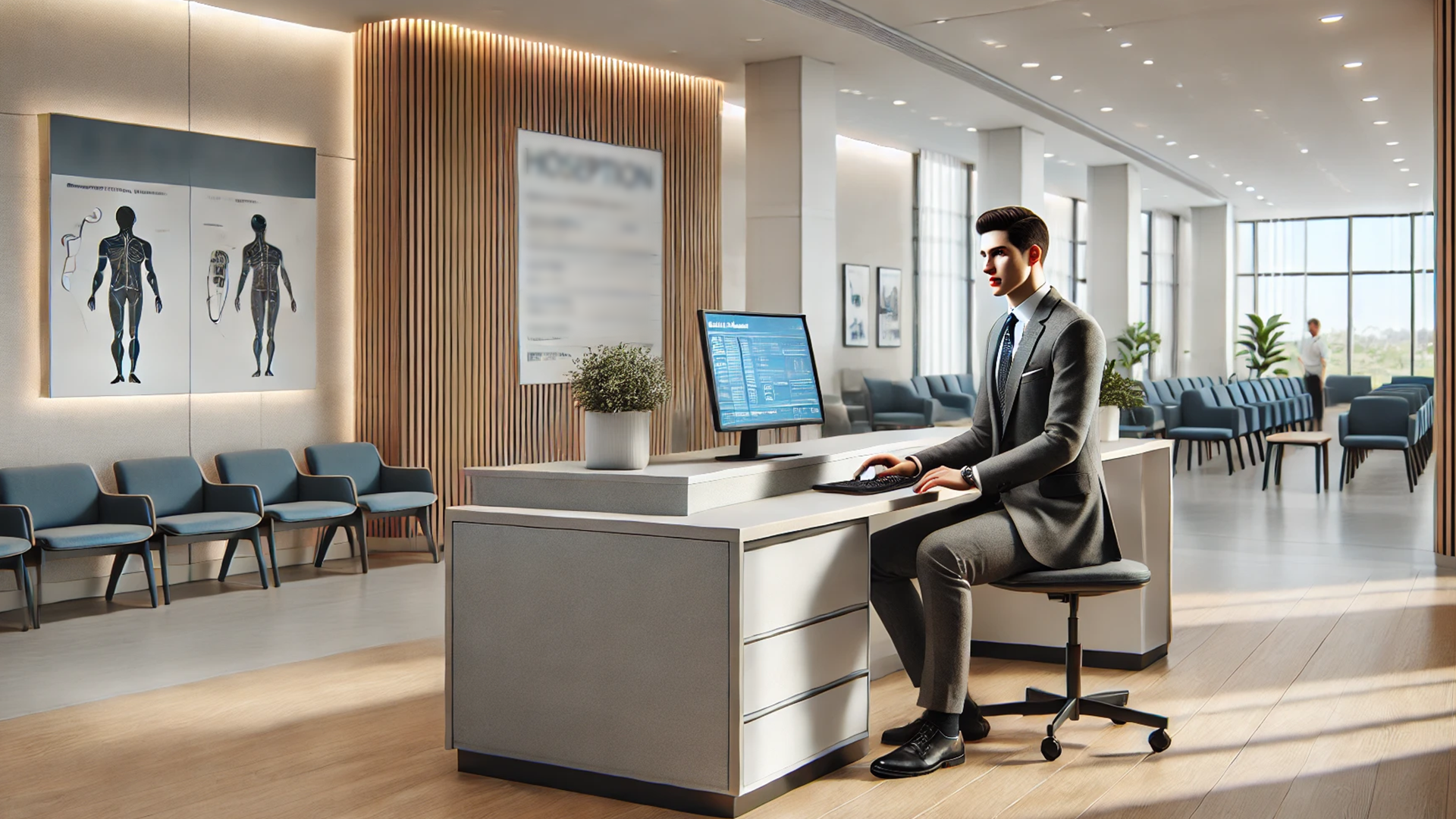
Thank you
Our team of industry domain experts combined with our guaranteed SLAs, our world class technology .


Get Immediate Help
Healthcare providers face increasing challenges in safeguarding sensitive patient data. With the rise of electronic health records (EHRs), telemedicine, and cloud-based healthcare systems, securing healthcare networks has never been more critical. To ensure that patient information remains confidential, secure, and protected from breaches, healthcare providers in the United States must comply with the Health Insurance Portability and Accountability Act (HIPAA).
The healthcare industry is one of the most targeted by cybercriminals, and this is where healthcare network solutions come into play. Implementing robust network security solutions not only protects patient data but also helps healthcare organisations meet HIPAA compliance standards. In this blog, we will dive deep into the relationship between network security and HIPAA compliance, explaining how the right security solutions are essential for safeguarding sensitive healthcare data.

Before we explore the role of network security, it's essential to understand what HIPAA compliance means for healthcare providers. HIPAA, established in 1996, aims to protect the privacy and security of patients’ health information. The act is made up of various rules, including the HIPAA Security Rule, which specifically addresses the technical safeguards needed to protect electronic protected health information (ePHI).
1. Data Security: HIPAA mandates the protection of ePHI through administrative, physical, and technical safeguards.
2. Access Control: Only authorised personnel should access ePHI, and stringent access controls are required to monitor and limit who can view or alter patient information.
3. Data Encryption: All sensitive data must be encrypted both at rest and in transit to prevent unauthorised access.
4. Incident Response: Healthcare providers must have procedures in place for detecting and responding to breaches, ensuring immediate corrective action.
Achieving compliance with HIPAA is not a one-time task but an ongoing commitment. Healthcare providers need to regularly update their systems and practices to meet changing requirements and new threats. This is where network security solutions become critical.

Effective network security solutions are the foundation of HIPAA compliance. They provide the tools and protocols needed to secure healthcare networks, ensuring the protection of sensitive data. From firewalls and encryption to threat detection and access control, network security services ensure the infrastructure remains safe from cyber threats.
Here’s how robust network security solutions help healthcare providers maintain HIPAA security compliance:
1. Protecting ePHI with Data Encryption
Encryption is a must under HIPAA’s security rule. By encrypting sensitive healthcare data, healthcare organisations ensure that ePHI is unreadable by unauthorised individuals, even if the data is intercepted during transmission. Network security solutions provide the necessary encryption protocols to protect ePHI both in transit and at rest.
2. Access Control and Monitoring
HIPAA requires strict controls on who can access patient information. Network security systems offer multi-factor authentication (MFA) and role-based access controls (RBAC), ensuring only authorised healthcare professionals can access sensitive data. These systems also offer real-time monitoring to detect and respond to unauthorised access attempts.
3. Data Loss Prevention (DLP)
DLP is critical in preventing unauthorised sharing or disclosure of ePHI. Network security services monitor all data transfers, ensuring that sensitive healthcare data cannot be shared outside of the approved networks. This is essential for ensuring HIPAA’s data security in healthcare requirements are met.
4. Firewalls and Intrusion Detection Systems (IDS)
Healthcare providers must have robust perimeter protection to safeguard against cyberattacks. Firewalls prevent unauthorised access to the network, while IDS continuously monitors network traffic for suspicious activities. These network security tools are vital for protecting healthcare organisations from breaches and maintaining HIPAA IT compliance.
5. Incident Response and Monitoring
HIPAA requires healthcare providers to have incident response procedures in place. Advanced network security services offer automated monitoring and real-time threat detection, allowing IT teams to respond to security incidents immediately. This proactive approach reduces the risk of data breaches and ensures that any potential HIPAA violations are addressed swiftly.
6. Secure Communication Channels
Ensuring the secure exchange of healthcare data, especially in the age of telemedicine, is vital. Network security solutions enable encrypted communication between healthcare providers and patients, ensuring that ePHI remains confidential and protected during remote consultations.

Healthcare organisations often struggle to meet HIPAA security compliance because of the complexity of its requirements. By adopting comprehensive network security solutions, healthcare providers can seamlessly integrate these protections into their daily operations.
Below are some practical steps healthcare providers can take to ensure their network security aligns with HIPAA compliance requirements:
1. Conduct Regular Risk Assessments
HIPAA requires regular risk assessments to identify vulnerabilities in healthcare networks. Conducting routine security audits ensures that any potential weaknesses in the network are identified and addressed before they result in a data breach.
2. Implement Multi-layer Security Solutions
A multi-layered approach is critical for preventing unauthorised access. By combining firewalls, IDS, encryption, and access control, healthcare providers can protect every layer of their network. This approach minimises the risk of cyberattacks and helps achieve HIPAA compliance.
3. Train Employees on Security Protocols
Human error remains one of the leading causes of data breaches in healthcare. Staff training on cybersecurity and HIPAA compliance is essential. Employees must understand how to protect ePHI, recognise phishing attacks, and follow security protocols to prevent breaches.
4. Ensure Secure Third-Party Vendors
Healthcare providers often rely on third-party vendors for services such as cloud storage and data processing. However, these vendors must also comply with HIPAA regulations. Network security services help ensure secure communication between healthcare organisations and third-party vendors, maintaining the protection of ePHI.
5. Automate Security Updates
Outdated software is a major vulnerability in healthcare networks. Network security services automatically deploy updates and patches to keep healthcare systems protected from new threats. Automation reduces the risk of human error and ensures that all security measures are up to date.

As the healthcare industry continues to embrace digital transformation, the need for advanced network security solutions will only grow. With the increasing adoption of telemedicine, cloud storage, and remote patient monitoring, healthcare organisations will need to strengthen their security infrastructure to remain compliant with HIPAA and protect sensitive patient information.
In the context of ensuring HIPAA compliance and protecting sensitive healthcare data through network security solutions, the following Microminder CS services would be highly beneficial:
1. Healthcare Network Security Solutions
Microminder CS can provide tailored network security solutions for healthcare organisations, ensuring compliance with HIPAA’s security rule by implementing advanced encryption protocols, multi-factor authentication (MFA), firewalls, and intrusion detection systems (IDS). These services help healthcare providers safeguard electronic protected health information (ePHI) from unauthorised access and breaches.
- How it helps: This service ensures that healthcare networks are protected from external cyber threats, while also enabling secure communication and data transfer, which are essential for HIPAA compliance.
2. Data Loss Prevention (DLP)
Microminder CS’s DLP solutions help healthcare providers prevent the unauthorised sharing or leakage of ePHI. DLP tools continuously monitor data transfers, ensuring that sensitive information remains secure within the network.
- How it helps: By detecting and stopping data leaks, this service ensures that sensitive healthcare data is protected and only accessible to authorised personnel, which is a crucial aspect of HIPAA compliance.
3. Incident Response and Monitoring
Through real-time incident response services, Microminder CS offers healthcare organisations automated monitoring and immediate responses to potential breaches or unauthorised access attempts. This service helps healthcare providers adhere to HIPAA’s incident response requirements.
- How it helps: Proactively detecting and addressing security incidents minimises the risk of breaches and ensures healthcare organisations can take swift corrective actions, thus maintaining HIPAA compliance.
4. Encryption and Secure Data Transmission
Microminder CS offers encryption solutions to protect healthcare data both at rest and in transit. These solutions ensure that sensitive ePHI remains secure, even when shared between different healthcare providers or stored in cloud systems.
- How it helps: Encryption is a critical requirement under HIPAA, and this service ensures that all healthcare data is encrypted, providing an additional layer of security to maintain compliance and prevent data breaches.
5. Third-Party Vendor Security
Microminder CS helps healthcare organisations manage and secure communications with third-party vendors, such as cloud storage providers, ensuring that these external partners comply with HIPAA standards when handling patient data.
- How it helps: Healthcare providers often rely on third-party services, and ensuring these vendors meet HIPAA’s security standards is essential to avoid data breaches and penalties.
These Microminder CS services ensure that healthcare organisations in the UK and other regions can maintain the highest level of data security, safeguard patient information, and meet HIPAA compliance requirements effectively.
Healthcare organisations cannot afford to overlook the importance of network security in achieving HIPAA compliance. By investing in comprehensive healthcare network security solutions, providers can protect ePHI, prevent costly breaches, and ensure compliance with the HIPAA security rule.
Network security not only provides a foundation for safeguarding healthcare data but also enhances the overall efficiency of healthcare operations by reducing downtime caused by cyberattacks and improving data integrity.
At Microminder CS, we specialise in delivering tailored network security solutions designed specifically for the healthcare industry. Our services ensure that healthcare providers meet HIPAA compliance requirements and stay protected against evolving cyber threats. With our cutting-edge technology, you can rest assured that your healthcare network is in safe hands.
Don’t Let Cyber Attacks Ruin Your Business
Call
UK: +44 (0)20 3336 7200
KSA: +966 1351 81844
UAE: +971 454 01252
Contents
To keep up with innovation in IT & OT security, subscribe to our newsletter
Recent Posts
Penetration Testing | 10/11/2025
Cloud Security | 07/11/2025
Cybersecurity | 06/11/2025
What is the role of network security in HIPAA compliance?
Network security protects patient data by implementing encryption, access controls, firewalls, and other measures to meet HIPAA's security requirements.Why is encryption important for HIPAA compliance?
Encryption ensures that ePHI remains secure by rendering it unreadable to unauthorised individuals, helping healthcare organisations prevent data breaches.How can healthcare providers ensure secure communication channels?
By utilising encrypted communication protocols, healthcare organisations can securely transmit sensitive patient data between providers and patients during telemedicine consultations.What are the penalties for not complying with HIPAA?
Penalties for non-compliance range from fines to legal actions, depending on the severity of the breach and the level of negligence involved.How often should healthcare providers update their network security protocols?
Healthcare providers should regularly review and update their network security protocols, especially when new threats or software vulnerabilities are identified.